
Jennifer Alexander-Brett, MD, PhD
Assistant Professor of Medicine, Pulmonary & Critical Care
- Email: jalexand@wustl.edu
Our research focuses on respiratory mucosal immunology, with a particular interest in intercellular crosstalk mediated by cytokines and extracellular vesicles. We employ a broad array of techniques including multi-omics analysis, protein biochemistry and cellular immunobiology to study mechanism in the airway diseases COPD, asthma, cystic fibrosis and lung transplant rejection.

Farners Amargant i Riera, PhD
Assistant Professor of Obstetrics & Gynecology
- Email: farners@wustl.edu
The Riera Lab uses a multidisciplinary approach to investigate how biochemical and biomechanical signaling from the ovary regulates folliculogenesis and oocyte quality, and whether these mechanisms are altered in reproductive-associated diseases such as PCOS and aging.
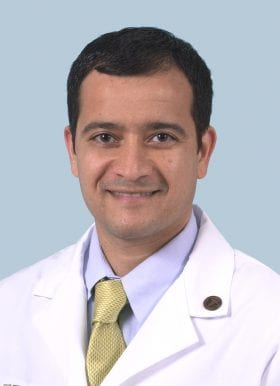
Rajendra Apte, MD, PhD
Professor, Department of Ophthalmology and Visual Sciences, Department of Developmental Biology
- Email: apte@wustl.edu
Research in the Apte lab is focused on innate immunity and immune effector mechanisms in the retina, oxidative stress and cell death, models of developmental angiogenesis and neovascularization, inflammation and photoreceptor survival, and macular degeneration.
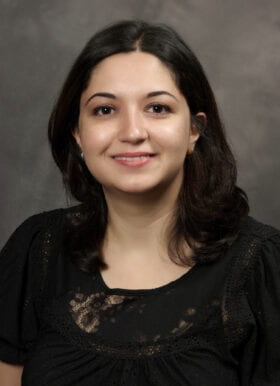
Ghazaleh Ashrafi, PhD
Assistant Professor of Cell Biology & Physiology; Affiliate, Department of Biomedical Engineering
- Email: ghazaleh@wustl.edu
The Ashrafi lab uses genetic, biochemical, and quantitative optical imaging techniques to study metabolic regulation of neurotransmission. The overall goal of the lab is to uncover novel molecular regulators of glycolysis and mitochondrial metabolism and elucidate their role in axonal degeneration and neurodegenerative disease. .

Rita Brookheart, PhD
Assistant Professor, Medicine
- Email: rbrookheart@wustl.edu
The Brookheart Lab focuses on the intersection of metabolism and stress responses in the context of aging and metabolic disease. We use basic and translational tools to identify and investigate regulators of metabolism important in controlling cell differentiation and function, as well as organ size.

Siyan Cao, MD, PhD
Assistant Professor, Department of Medicine, Division of Gastroenterology
- Email: caos@wustl.edu
Basic and translational research in inflammatory bowel disease, including epithelial barrier regeneration and gene therapy.

Grant Challen, PhD
Associate Professor, Division of Oncology, Department of Medicine
- Email: grantchallen@wustl.edu
The Challen lab studies the genetic and epigenetic regulation of blood-forming hematopoietic stem cells (HSCs) with the goal to identify new methods of blood cancer prevention and treatment.

Chun-Kan Chen, PhD
Assistant Professor of Cell Biology & Physiology
- Email: chun-kan@wustl.edu
Regulation and function of circRNA and to uncover the molecular mechanisms of circRNA-mediated disease. Using the circRNA screening technology that he developed to decipher RNA elements, genomic features, and protein components that regulate the functions of circRNAs and determine how they contribute to circRNA-mediated disease.
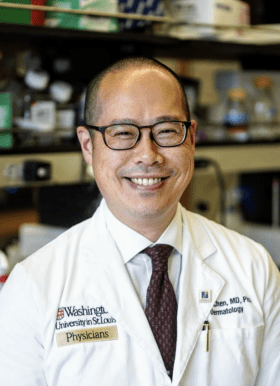
David Chen, MD, PhD
Assistant Professor of Medicine
Associate Chief for Research, Dermatology
- Email: davidchen@wustl.edu
The unifying theme in the Chen Lab is to study the genetic and epigenetic factors that constitute premalignant states in the skin. We have three active areas of study, including 1. Characterizing the interplay between aging and skin cancer, 2. Understanding the role of epigenetic perturbations in the development of cutaneous squamous cell carcinoma, and 3. Characterizing melanocyte transition states in the development of melanoma.
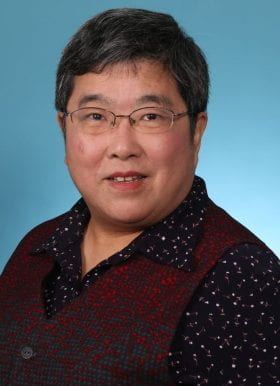
Shiming Chen, PhD
Dr. Bernard and Janet R. Becker Distinguished Professor, Ophthalmology and Visual Sciences
- Email: chenshiming@wustl.edu
The Chen Lab studies the molecular mechanisms controlling photoreceptor gene expression during photoreceptor development and maintenance in the mammalian retina, and how genetic mutations cause gene mis-regulation and defects in the function and survival of the photoreceptor neurons. They particularly focus on photoreceptor-specific transcription factors, such as CRX. Their ultimate goal is to develop therapeutic strategies for treatment.
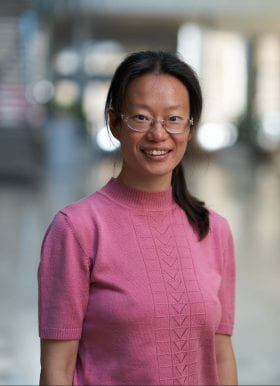
Yao Chen, PhD
Assistant Professor, Department of Neuroscience; Affiliate, Department of Biomedical Engineering
- Email: yaochen@wustl.edu
Neuromodulators such as dopamine, acetylcholine, and neuropeptides have profound effects on neural circuits and behavior. Altered neuromodulation is associated with most psychiatric disorders, major neurodegenerative disorders, and neuromodulatory systems are targets of almost all drugs of abuse. The Chen lab aims to understand how the dynamics of neuromodulators and intracellular signals contribute to the function of neuromodulators, to learning, and to the function of sleep.

Kyunghee Choi, PhD
Professor, Department of Pathology & Immunology
- Email: kchoi@wustl.edu
The Choi lab studies the molecular mechanisms regulating vascular and hematopoietic specification and development.
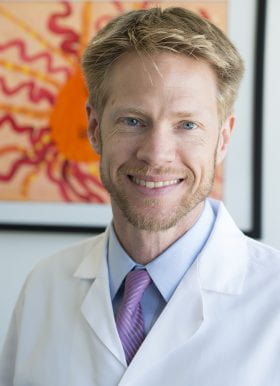
Matthew Ciorba, MD
Associate Professor, Division of Gastroenterology, Department of Medicine
- Email: mciorba@wustl.edu
The Ciorba lab researches Intestinal inflammation and colon cancer.

Brian Clark, PhD
Assistant Professor, Department of Ophthalmology and Visual Sciences, Department of Developmental Biology
- Email: Brian.s.clark@wustl.edu
The Clark lab is interested in understanding the molecular mechanisms underlying retinal neurogenesis and cell fate determination. Using a suite of profiling techniques, we seek to understand the gene expression and epigenetic changes governing retinal development.
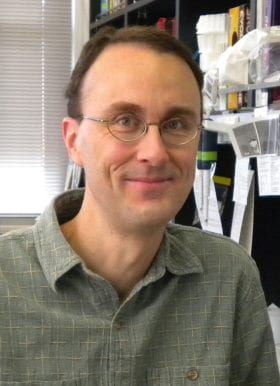
Joseph Corbo, MD, PhD
Professor, Department of Pathology and Immunology
- Email: jcorbo@wustl.edu
The Corbo lab studies the transcriptional regulatory networks that underlie the development, evolution, and diseases of photoreceptors.

Clair Crewe, PhD
Assistant Professor of Cell Biology & Physiology
- Email: clair.crewe@wustl.edu
The Crewe lab uses transgenic mouse lines, cell culture and biochemistry to understand extracellular vesicle (EV)-mediated signaling during homeostatic and pathologic metabolic regulation. Crosstalk between adipocytes and cells within the adipose tissue (AT) microenvironment directs healthy tissue expansion in response to overnutrition. In contrast, the inability to coordinate these inter-cellular signals during nutrient stress results in AT hypoxia, inflammation, and fibrosis, all of which contribute to systemic metabolic disturbances in obesity and type 2 diabetes.

Aaron DiAntonio, MD, PhD
Professor, Department of Developmental Biology
- Email: diantonio@wustl.edu
The DiAntonio lab investigates the molecular mechanisms underlying neurodegeneration and neuroinflammation using genetic, molecular, cell biological, and neuroanatomical techniques in both human stem cell-derived neurons and animal models. Their goal is to translate fundamental mechanistic insights into novel treatments for neurological disease.
The DiAntonio lab is ideal for students interested in MD/PhD programs or PhD students interested in the intersection between fundamental research and the development of novel therapies. Applicants with some previous research experience are preferred.
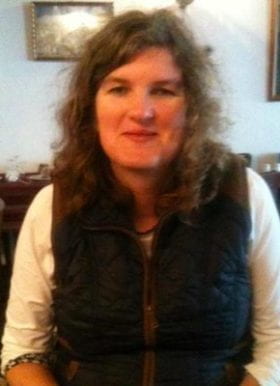
Sabine M Dietmann, PhD
Assistant Professor of Developmental Biology and Medicine, School of Medicine
- Email: sdietmann@wustl.edu
The Dietmann Lab specializes in the development of integrative multi-omics and machine learning approaches to the complex data sets generated by single-cell sequencing technologies in developmental biology and medicine. Her research has focused on the epigenetic landscape of embryonic stem cells and in vitro systems of human development.

Naomi Dirckx, PhD
Assistant Professor, Department of Orthopedic Surgery
- Email: dirckx@wustl.edu
My research interests revolve around the investigation of a crucial TCA metabolite called citrate and its plasma-membrane transporter, SLC13A5. Utilizing murine models, my lab will study the role of SLC13A5-mediated cellular citrate import in bone mineralization throughout growth and aging, while also investigating the systemic implications of altered citrate partitioning in skeletal tissues by targeting osteogenic citrate metabolism. In addition, I’m also interested in elucidating the molecular mechanisms behind SLC13A5 epilepsy, a rare human disease with loss-of-function mutations in SLC13A5, causing childhood epilepsy, developmental delays, hypotonic muscles and amelogenesis imperfecta.
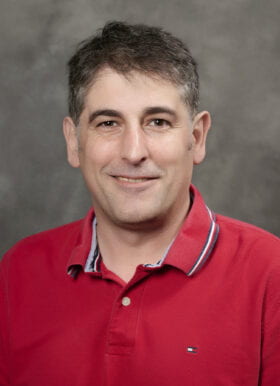
Sergej Djuranovic, PhD
Associate Professor of Cell Biology & Physiology
- Email: sergej.djuranovic@wustl.edu
Djuranovic Lab uses different biochemical, molecular biology and genetics techniques to investigate the process of gene expression regulation at the level of mRNA translation. The research is focused on sequence motifs in mRNA as well as on ribonucleoprotein (RNP) complexes and RNA binding proteins (RBPs) that control translational efficiency of their target mRNAs or play a general role in RNA metabolism.

Ziao Fu, PhD
Assistant Professor, Department of Cell Biology & Physiology
- Email: ziao@wustl.edu
The Fu Lab utilizes cryo-EM and cryo-ET to investigate the structure and dynamics of cellular membranes and protein complexes in their native environments. Our research focuses on understanding how membrane proteins respond to stimuli, particularly mechanical forces in mechanosensation. Beyond scientific discovery, we are also dedicated to advancing cryo-EM techniques to further our research objectives.
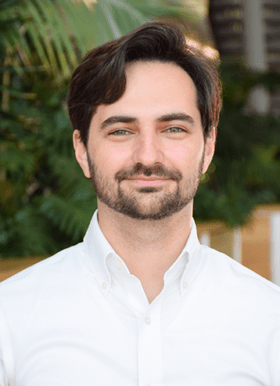
Dennis Goldfarb, PhD
Assistant Professor of Cell Biology & Physiology
- Email: d.goldfarb@wustl.edu
Dennis Goldfarb, PhD’s research focuses on computational mass spectrometry, proteomics, and their applications in biology. His lab develops open-source solutions for novel data acquisition strategies, data analysis, and visualization tailored to the unique challenges of each experiment. Dr. Goldfarb aims to increase the throughput and reproducibility of large-scale projects with automated pipelines that leverage high-performance computing. Recently his research has concentrated on instrumentation, protein complex identification, and de novo peptide sequencing.

David Gutmann, MD, PhD
Professor, Department of Neurology
- Email: gutmannd@wustl.edu
The Gutmann lab studies the genetic, cellular and molecular causes for neurodevelopmental disabilities and brain tumorigenesis using novel genetically engineered mouse and human iPSC models.
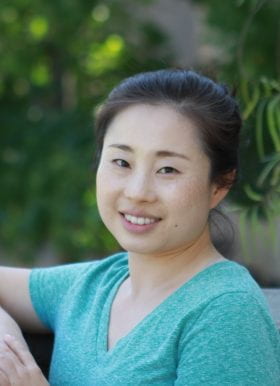
Claudia Han, PhD
Assistant Professor, Department of Pathology & Immunology
- Email: claudiah@wustl.edu
Microglia are resident macrophages of the brain that engage in a variety of processes essential for brain development and homeostasis. Microglia dysfunction contributes to the pathogenesis of neurodegenerative diseases and neurodevelopmental conditions. My research program investigates microglia phenotypes in these neuropathologies through the lens of epigenomics and transcriptomics. Particularly, I am interested in identifying and modifying the microglial gene regulatory networks that respond to changes in the brain environment through the use of mouse genetic models, humanized mice models and iPSCs.
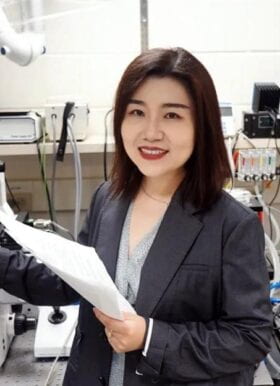
Xueyan He
Professor, Cell Biology & Physiology
- Email: xueyanh@wustl.edu
The He Lab is dedicated to advancing knowledge of the mechanisms responsible for colorectal tumor progression, with a specific focus on Stress and its influence on the Tumor Microenvironment.

Jing Hughes
Assistant Professor, Division of Endocrinology, Metabolism & Lipid Research
- Email: jing.hughes@wustl.edu
We study how the primary cilium, sensory antenna of the cell, regulates signaling and secretory functions in the pancreatic islet.
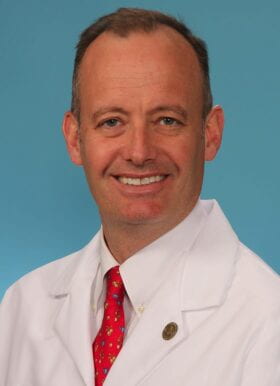
Benjamin Humphreys, MD, PhD
Professor and Chief, Division of Nephrology, Department of Medicine
- Email: humphreysbd@wustl.edu
The Humphreys Lab investigates kidney injury, regeneration and fibrosis using single cell transcriptomic, epigenomic and spatial techniques, pluripotent stem cell-derived kidney organoids, mouse models and human tissue. Successful applicants will have the opportunity to learn wet lab approaches including single cell pipelines and may receive computational training depending on interest and experience.

Sanjay Jain, MD, PhD
Associate Professor, Division of Nephrology, Department of Medicine
- Email: sanjayjain@wustl.edu
The Jain lab studies the molecular and cellular mechanisms that regulate maintenance, differentiation and function of kidney progenitors in normal development and disease states.
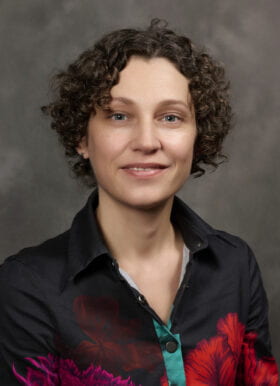
Silvia Jansen, PhD
Assistant Professor of Cell Biology & Physiology
- Email: silvia.jansen@wustl.edu
Focus is on elucidating the molecular mechanisms that regulate the architecture, dimensions and dynamics of actin filament networks, and tune them to support essential cellular functions ranging from cell migration and cytokinesis to neurogenesis.
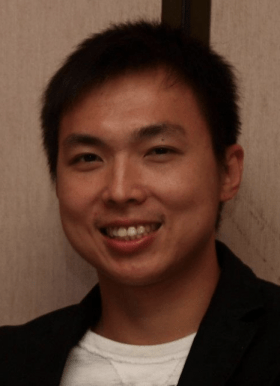
Sheng Chih (Peter) Jin, PhD
Assistant Professor, Department of Genetics
- Email: jin810@wustl.edu
Research in the Jin lab is devoted to identifying the genes and elucidating the molecular, cellular, and developmental mechanisms that drive the development of specific neurodevelopmental disorders, including congenital hydrocephalus, cerebral palsy, and Moyamoya disease.

Aaron Johnson, PhD
Assistant Professor, Department of Developmental Biology
- Email: anjohnson@wustl.edu
The Johnson lab develops and uses a variety of functional genetic approaches to gain deep mechanistic understanding into the processes controlling muscle development, regeneration, and disease.

Yoon-A Kang, PhD
Assistant Professor, Department of Medicine, Division of Hematology
- Email: Yoonakang@wustl.edu
The Kang lab’s research interests are understanding the mechanisms underlying cell fate decision and lineage specification in hematopoietic stem cells and multipotent progenitors to modulate lineage output in disease and aging contexts.

Celeste Karch, PhD
Professor, Department of Psychiatry
- Email: karchc@wustl.edu
The Karch lab studies the molecular mechanisms underlying neurodegenerative tauopathies.
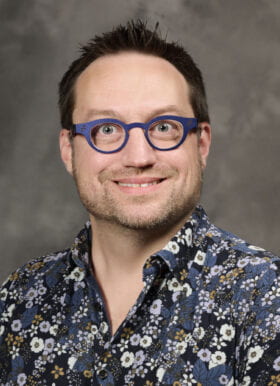
David J Kast, PhD
Assistant Professor of Cell Biology & Physiology
- Email: kast@wustl.edu
Biogenesis and dynamics of intracellular membrane compartments; molecular mechanisms and regulation of cytoskeleton and membrane interactions.

Miriam Kim, MD
Assistant Professor, Oncology
- Email: miriamykim@wustl.edu
Focused research on rational manipulation of human hematopoietic cells for the treatment of disease by combining genetically engineered hematopoietic stem cells and chimeric antigen receptor T cells for therapy of acute myeloid leukemia.

Eynav Klechevsky, PhD
Associate Professor, Immunology
- Email: eklechevsky@wustl.edu
The Klechevsky Lab investigates the role of dendritic cell subsets in both healthy and diseased tissues, as well as the environmental cues that regulate their development, with the goal of developing novel immunotherapy approaches to combat cancer and autoimmune diseases.

Alex Knights, PhD
Assistant Professor, Orthopaedic Surgery
- Email: aknights@wustl.edu
The Knights lab is fundamentally interested in the complex cellular and molecular interactions that take place during musculoskeletal homeostasis and disease. We want to understand how a breakdown in the crosstalk that governs tissue health leads to inflammation, fibrosis, and mineralization in joint diseases like osteoarthritis.

Kristen Kroll, PhD
Professor, Department of Developmental Biology
- Email: kkroll@wustl.edu
The Kroll lab uses human stem cell and mouse models to study transcriptional and epigenetic regulation of brain development and its disruption to cause neurodevelopmental disorders, including autism and intellectual disability syndromes.
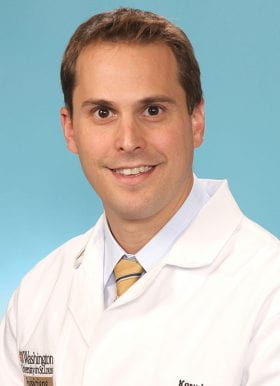
Kory Lavine, MD, PhD
Professor, Department of Medicine, Division of Cardiology, Department of Developmental Biology
- Email: klavine@wustl.edu
The overarching goal of the Lavine laboratory is to identify disease mechanisms that contribute to the pathogenesis of heart failure and design novel strategies to effectively treat these important diseases. They focus on two important areas: precision therapies for heart failure and immune cell heterogeneity and ontogeny.

Tristan Qingyun Li, PhD
Assistant Professor, Department of Neuroscience, Department of Genetics
- Email: qingyunli@wustl.edu
The Li laboratory is broadly interested in neuroimmunology with a focus on microglial biology. Particularly, the lab is interested in combining cutting-edge single-cell genomic technologies with in vitro and in vivo genetic, molecular and cellular tools to investigate microglial development, heterogeneity and mechanisms of neuro-immune interactions underlying brain structure and disease. We try to address two major questions: (1) how microglia (and other immune cells) are different in development, aging and neurodegeneration, and related to that, how these different populations of microglia interact with other neural cells to control brain structure and functioning; (2) how microglial fate is specified and diverged from other tissue macrophages during early embryonic development. By studying these questions, the overarching goal is to gain a better understanding of microglial functions in the establishment of the nervous system, as well as how changes in these functions contribute to neurological diseases.
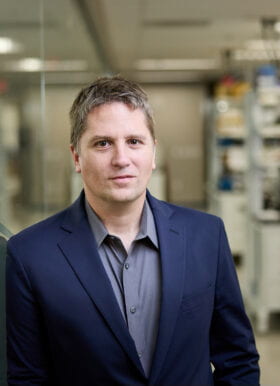
Michael B Major, PhD
Professor of Cell Biology & Physiology
- Email: bmajor@wustl.edu
Studying how perturbation of specific signal transduction pathways contributes to the initiation, progression and dissemination of cancer.

Helen McNeill, PhD
Professor, Department of Developmental Biology
- Email: mcneillh@wustl.edu
The McNeill lab studies how tissue growth and patterning are regulated in normal development, and how disruptions lead to disease. Current projects focus on Nemp proteins in metazoan fertility and the Fat/Hippo pathway in flies and mice.
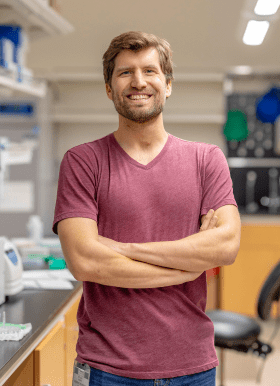
Michael P. Meers, PhD
Assistant Professor, Department of Genetics
- Email: meers@wustl.edu
The Meers Lab studies how transcription factors interact with and overcome barriers presented by chromatin landscapes to specify developmental and cellular reprogramming outcomes. To do so, we develop cutting-edge epigenomics techniques to map transcription factor binding and chromatin structure in the same context at high resolution. We further use these tools and the insights gained from them to better understand the etiology of a range of cancers whose pathogenesis centers on the global dysregulation of chromatin landscapes.
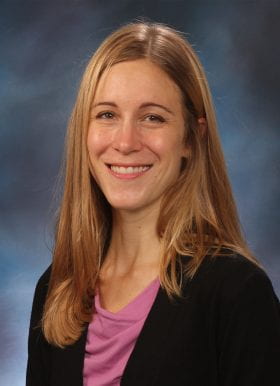
Gretchen Meyer, PhD
Assistant Professor, Program in Physical Therapy; Affiliate, Department of Biomedical Engineering
- Email: meyerg@wustl.edu
The Meyer lab focuses on understanding how changes at the cellular level in skeletal muscle affect muscle structure and function, and, in turn, how pathological changes in muscle affect cellular processes. In particular, their research investigates fat’s effect on muscle function and how that effect is regulated at cellular and tissue levels.
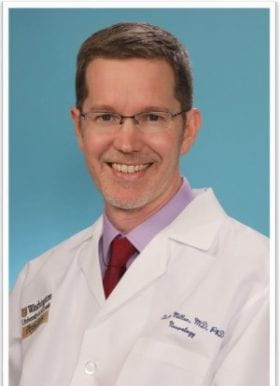
Timothy Miller, MD, PhD
Professor, Department of Neurology
- Email: miller.t@wustl.edu
The Miller Laboratory is dedicated to understanding neurodegenerative diseases such as amyotrophic lateral sclerosis (ALS) and dementias in order to develop new, effective, and safe treatments. They focus on translational neuroscience, new therapeutic approaches for neurodegenerative diseases, and precision medicine.
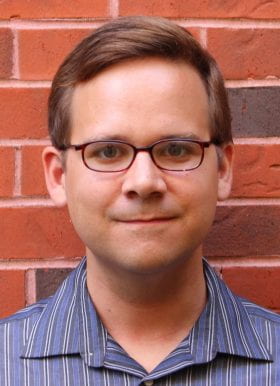
Jeffrey Millman, PhD
Professor, Division of Endocrinology, Metabolism, and Lipid Research, Department of Medicine; Department of Biomedical Engineering
- Email: jmillman@wustl.edu
The Millman lab investigates novel stem cell technology and biomedical engineering approaches for the treatment of diabetes.
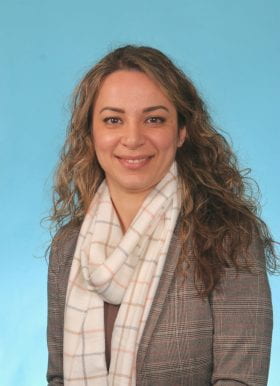
Mayssa Mokalled, PhD
Assistant Professor, Department of Developmental Biology
- Email: mmokalled@wustl.edu
The Mokalled lab investigates mechanisms of spinal cord regeneration after injury or disease using zebrafish as a primary model.

Josh Morgan, PhD
Assistant Professor of Ophthalmology
- Email: jlmorgan@wustl.edu
The Morgan Lab studies the organization, development, degeneration, and regeneration of the synaptic organization of the visual system. We are currently focused on determining the extent to which microcircuitry in the visual thalamus can recover from denervation..

Colin G Nichols, PhD
Carl Cori Professor, Department of Cell Biology and Physiology; Director, Center for the Investigation of Membrane Excitability Diseases; Affiliate, Department of Biomedical Engineering
- Email: cnichols@wustl.edu
Colin’s research spans from the molecular basis of potassium channel activity to human disease. His work on KATP channel activity led to the discovery of the mechanism of human neonatal diabetes and a revolution in therapy – affected children can now take once a day pills – even dissolved in milk – rather than traumatic, three times a day insulin injections.

David Ornitz, MD, PhD
Professor, Department of Developmental Biology
- Email: dornitz@wustl.edu
The Ornitz lab investigates the functions of Fibroblast Growth Factors (FGFs) and their role in development, homeostasis, tissue regeneration, and response to injury. We primarily use mouse models and cell culture. Our areas of interest include skeletal homeostasis and maintenance of bone mass, postnatal lung development, pulmonary hypertension, and heart failure.
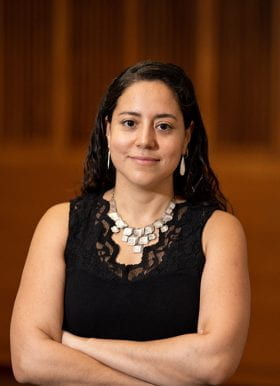
B. Duygu Ozpolat, PhD
Assistant Professor, Department of Biology, Department of Developmental Biology
- Email: bdozpolat@wustl.edu
If humans lose their reproductive cells (i.e eggs and sperm) they become infertile, in contrast, some animals regenerate their reproductive cells and reproductive organs. The Ozpolat lab’s goal is to uncover the mechanisms of reproductive cell and tissue regeneration by identifying the cell types and genes involved in this process, which will inform regenerative medicine approaches.

David J Pagliarini, PhD
Hugo F. & Ina C. Urbauer Professor and BJC Investigator Departments of Cell Biology and Physiology, Biochemistry and Molecular Biophysics, and Genetics
- Email: pagliarini@wustl.edu
We are an interdisciplinary team of scientists driven to understand the biochemical underpinnings of mitochondrial dysfunction in human diseases. Together, we integrate large-scale methodologies with traditional biochemistry to investigate the modulation, adaptation, and basic metabolic function of mitochondria.

Hua Pan, PhD
Associate Professor, Department of Medicine; Affiliate, Department of Biomedical Engineering
- Email: hpan@wustl.edu
The Pan Lab is studying the basic conception, development, and clinical application of novel nanostructures that serve as safe and effective delivery vehicles for therapeutic nucleotides to mitigate diseases including arthritis and cancer treatment induced vital organ injury.
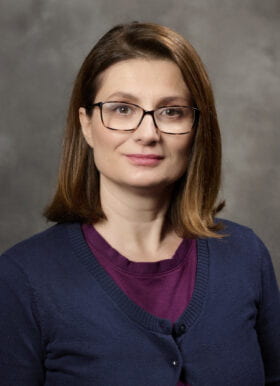
Slavica Pavlovic-Djuranovic, PhD
Assistant Professor of Cell Biology & Physiology
- Email: spavlov@wustl.edu
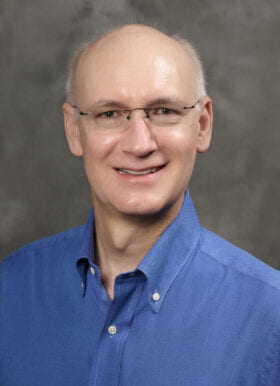
David W Piston, PhD
Edward J. Mallinckrodt, Jr. Professor and Head of Cell Biology & Physiology; Affiliate, Department of Biomedical Engineering
- Email: piston@wustl.edu
The Piston lab focuses on understanding the role of glucagon (counter-regulatory hormone to insulin) in glucose homeostasis and the pathology of diabetes. We develop and apply quantitative fluorescence technology to assay living islet function quantitatively both ex vivo and in vivo, and elucidate the regulation of glucagon secretion from α-cells.

Elizabeth Pollina, PhD
Assistant Professor, Department of Developmental Biology
- Email: pollina@wustl.edu
The Pollina lab leverages new tools and techniques from neuroscience, epigenetics, and genome integrity to advance our understanding of genome fidelity in the nervous system of living organisms. We characterize how diverse environmental stimuli trigger changes in transcription, chromatin, and DNA damage and examine how these dynamic processes go awry in aging and neurological disease.

Erica L Scheller, DDS, PhD
Associate Professor, Department of Medicine; Department of Cell Biology & Physiology; Affiliate, Department of Biomedical Engineering
- Email: scheller@wustl.edu
The Scheller laboratory synthesizes concepts from cell biology, physiology, and bioengineering to study the relationships between the nervous system and the skeleton. They have a directed interest in understanding how neural signals contribute to skeletal homeostasis, and how perturbations to this system contribute to bone loss, impaired healing, and altered regeneration.
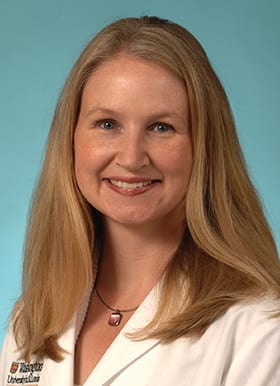
Laura Schuettpelz, MD, PhD
Professor, Department of Pediatrics, Department of Developmental Biology
- Email: Schuettpelz_l@wustl.edu
Research in the Schuettpelz lab focuses on understanding how inflammatory signals regulate hematopoietic stem cells, and also how these signals can contribute to hematopoietic malignancies.
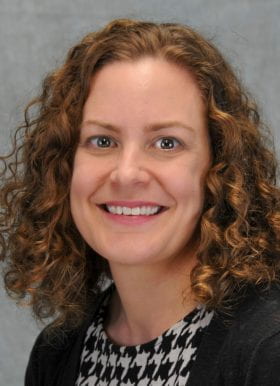
Lavinia Sheets, PhD
Assistant Professor, Department of Otololaryngology, Department of Developmental Biology
- Email: sheetsl@wustl.edu
The Sheets lab uses zebrafish as a model system to understand how sensory hair cells of the auditory system develop, degenerate, and regenerate. A main focus of the lab is to identify biological pathways that promote nerve regeneration and hair-cell reinnervation with the goal of providing information toward clinical regenerative therapies.
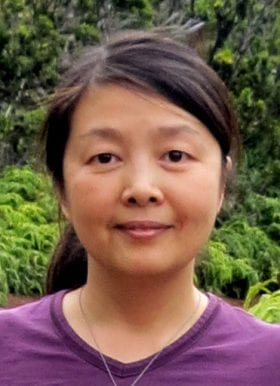
Hua Shen, PhD
Assistant Professor, Department of Orthopedic Surgery
- Email: hshen22@wustl.edu
The Shen lab’s research mostly focuses on tendon injury, a common and challenging orthopaedic condition that causes pain and long-term functional disability. In collaboration with orthopaedic surgeons and tissue engineers, they use a multidisciplinary approach to study cellular and molecular regulation of tendon homeostasis and healing processes, with a particular interest in developing new stem cell vesicle and small molecule-based therapies.

Matthew Silva, PhD
Julia and Walter R. Peterson Orthopaedic Research Professor; Affiliate, Department of Biomedical Engineering
- Email: silvam@wustl.edu
The Silva lab studies the mechanical and molecular factors that regulate loading-induced bone formation and bone injury response and repair.
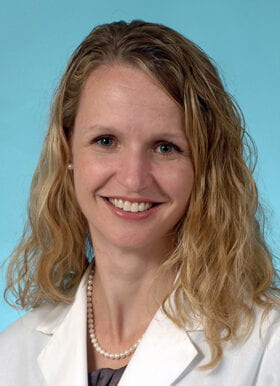
Alison Snyder-Warwick
Associate Professor of Surgery
Our laboratory studies the neuromuscular junction during embryogenesis, homeostasis, injury and recovery, and aging. We specifically study the roles of terminal Schwann cells in these events and the cells with which they interact.

Lilianna Solnica-Krezel, PhD
Professor and Head, Department of Developmental Biology; Co-Director, Center of Regenerative Medicine; Affiliate, Department of Biomedical Engineering
- Email: solnical@wustl.edu
The Solnica-Krezel lab studies the cellular and molecular genetic mechanisms underlying vertebrate gastrulation in zebrafish and human embryonic stem cells.
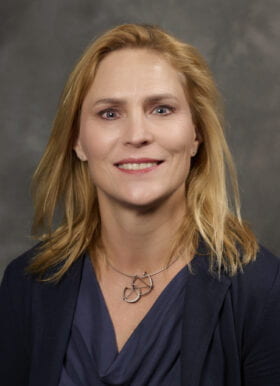
Sheila A Stewart, PhD
Gerty Cori Professor and Vice Chair, Department of Cell Biology & Physiology Professor, Department of Medicine
- Email: sheila.stewart@wustl.edu
Dr. Sheila Stewart’s research focuses on understanding how age-related changes in noncancerous cells (referred to as stroma) participate in cancer development. While it is clear that mutations in an incipient tumor cell are important for cancer development, it has become evident that changes in the surrounding stroma are also critical to the process. Indeed, old stromal cells can promote tumor cell growth. Dr. Stewart’s group is delving further into how old cells modulate the immune response and impact dormant tumor cells and thus promote cancer with the intent of identifying possible therapeutic targets.

Stephen Stone, MD
Assistant Professor, Department of Pediatrics
- Email: sstone@wustl.edu
Dr. Stone studies the role of Fibroblast Growth Factors in Severe Insulin Resistance Syndromes. His research uses both murine and stem cell based models to better understand these rare and debilitating conditions, with the ultimate goal of providing new therapies for these patients.

Amber Stratman, PhD
Assistant Professor, Department of Cell Biology & Physiology, Department of Developmental Biology
- Email: a.stratman@wustl.edu
The Stratman lab is broadly interested in how blood vessels form and stabilize during development, and how changes in these processes affect tissue homeostasis and disease.

Thorold Theunissen, PhD
Assistant Professor, Department of Developmental Biology
- Email: t.theunissen@wustl.edu
The Theunissen lab investigates the molecular mechanisms regulating distinct pluripotent stem cell states and their applications in regenerative medicine.
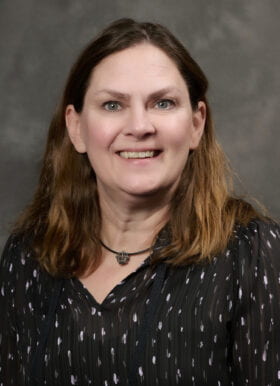
Heather L True, PhD
David English Smith Professor, Department of Cell Biology and Physiology
- Email: heather.true@wustl.edu
My research investigates how the process of protein misfolding occurs, how it propagates, and how these problems can be corrected in the cell. We are specifically interested in prions, toxic protein aggregates and amyloid associated with neurodegenerative diseases, and chaperone mutants linked to a form of muscular dystrophy. We use a yeast model system and biochemical approaches to uncover important cellular contributors and elucidate mechanisms to prevent or rescue protein misfolding and aggregation.

Tony Tsai, MD, PhD
Assistant Professor, Department of Developmental Biology; Affiliate, Department of Biomedical Engineering
- Email: tonytsai@wustl.edu
Why are tissue patterns and shapes so precisely controlled in embryos but not stem cell-derived organoids? Can we learn how to build tissues reproducibly by studying how embryos accomplish this? The Tsai lab uses zebrafish as the primary model to investigate the rules of tissue patterning and morphogenesis. They combine interdisciplinary approaches such as live embryo imaging, CRISPR genetics, single-cell genomics, mechanical assays, and computational modeling.
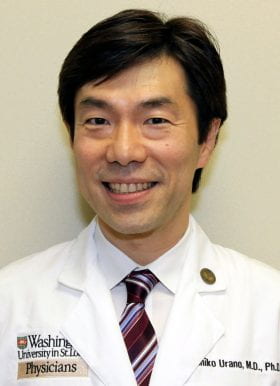
Fumihiko Urano, MD, PhD
Professor, Department of Medicine, Division of Endocrinology, Metabolism & Lipid Research
- Email: urano@wustl.edu
The Urano lab is currently developing regenerative and gene therapies for diabetes, retinal dystrophy, neurodegeneration, and Wolfram syndrome.

Deborah Veis, MD, PhD
Professor of Medicine
Professor of Pathology and Immunology
- Email: dveis@wustl.edu
The Veis lab studies the interaction of bone cells with invaders – either microbial or tumor cells – to understand how the microenvironment can be targeted to treat infection and bone metastasis. Current areas of focus include S. aureus osteomyelitis as well as tumor-derived extracellular vesicles (EVs), using a combination of cell culture and mouse models.
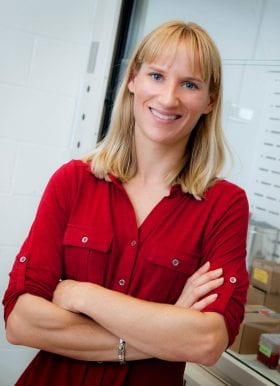
Jessica Wagenseil, DSc
Professor, Department of Mechanical Engineering and Materials Science; Affiliate, Department of Biomedical Engineering
- Email: jessica.wagenseil@wustl.edu
The Wagenseil lab studies how mechanical stimuli regulate large artery formation and remodeling in development and disease.
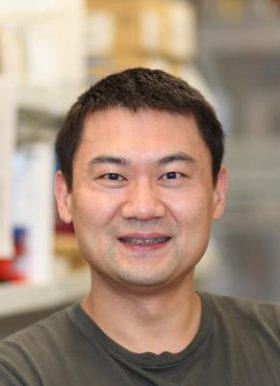
Ting Wang, PhD
Professor, Department of Genetics
- Email: twang@wustl.edu
The Wang lab’s research is to understand the evolution and adaption of human regulatory networks, with a focus on the impact of these processes on human health and disease. In particular, we investigate the evolutionary model of mobile elements (or transposable elements) and their roles in basic biology and cancer, including their genetic and epigenetic regulation.

(Conrad) Chris Weihl, MD, PhD
Professor, Department of Neurology
- Email: weihlc@wustl.edu
The Weihl lab goal is to understand the molecular mechanisms of protein inclusion formation, disaggregation, and clearance in myodegenerative (skeletal muscle) and neurodegenerative diseases. They utilize molecular biology, cellular systems, biochemical approaches and animal models to ask and answer these fundamental questions.

Philip Williams, PhD
Assistant Professor, Department of Ophthalmology and Visual Sciences
- Email: prwillia@wustl.edu
The Williams lab is interested in selective neuronal vulnerability in degeneration and trauma. We use a combination of in vivo microscopy, transcriptomics, and viral mediated gene over expression/knockout to manipulate neurons in the retina with the long term goal of increasing neuronal survival and axon regeneration in degenerative mouse models.

Matthew Wood, PhD
Assistant Professor, Department of Surgery
- Email: woodmd@wustl.edu
The Wood lab studies treatment paradigms for peripheral nerve injury.

Hiroko Yano, PhD
Associate Professor of Neurosurgery, Neurology, and Genetics
- Email: yanoh@wustl.edu
The Yano Lab is interested in mechanisms leading to neurodegenerative diseases and brain tumors and the development of disease therapies.

Zhongsheng You, PhD
Professor of Cell Biology & Physiology
- Email: zyou@wustl.edu
Our lab studies the DNA damage response and replication stress response in human cells that are essential for genome maintenance and cancer avoidance. We are also interested in the connection between genome maintenance and RNA surveillance, focusing on the nonsense-mediated RNA decay (NMD) pathway in the DNA damage response. We employ a range of techniques, including cell imaging with genetically encoded reporters, laser microirradiation and genome-wide CRISPR-Cas9 screens, to identify new mechanisms of DNA and RNA surveillance systems, with the goal of improving the understanding and treatment of cancer..
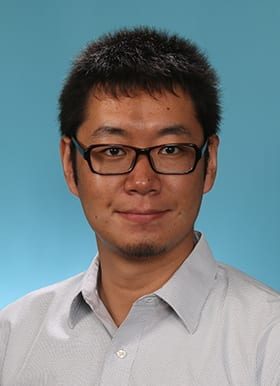
Bo Zhang
Associate Professor, Developmental Biology
We develop bioinformatics tools to analyze high-throughput sequencing data and discover epigenetic changes associated with the activation and silencing of enhancer regulatory elements during embryonic development and carcinogenesis. We construct gene regulatory models to integrate genetic variants, epigenetic modifications and enhancer activation to explain the gene expression regulation in normal and cancer cell fate determination.

Chao Zhou, PhD
Professor, Biomedical Engineering, McKelvey School of Engineering
- Email: chaozhou@wustl.edu
The Zhou lab’s research interests are in optical coherence tomography, a growing technology used to perform high-resolution cross-sectional imaging using light.